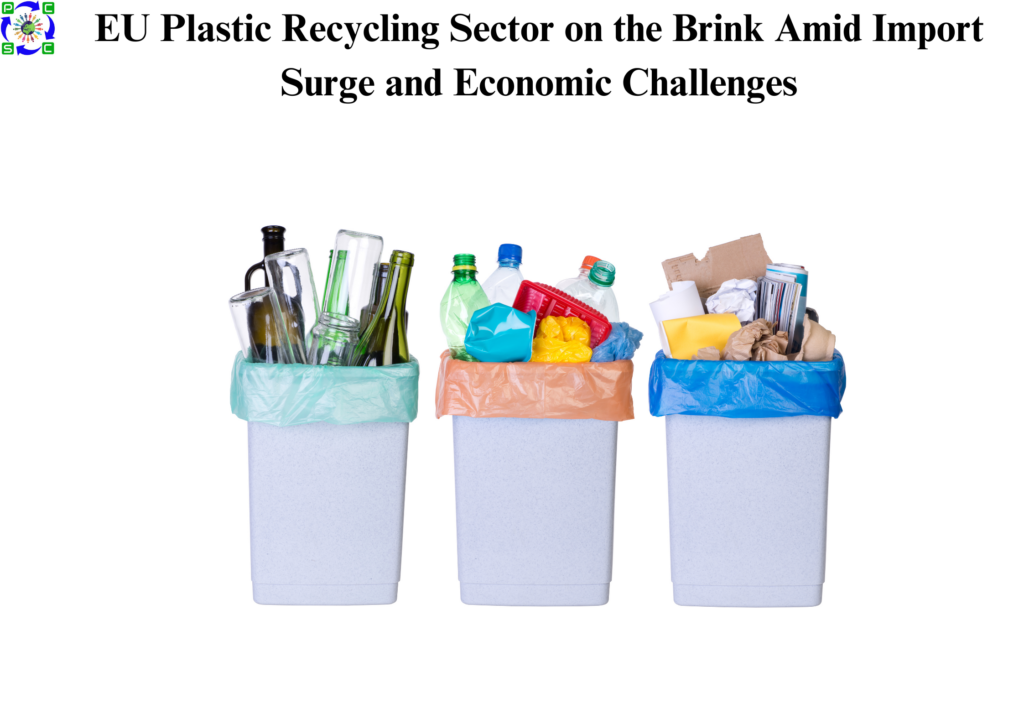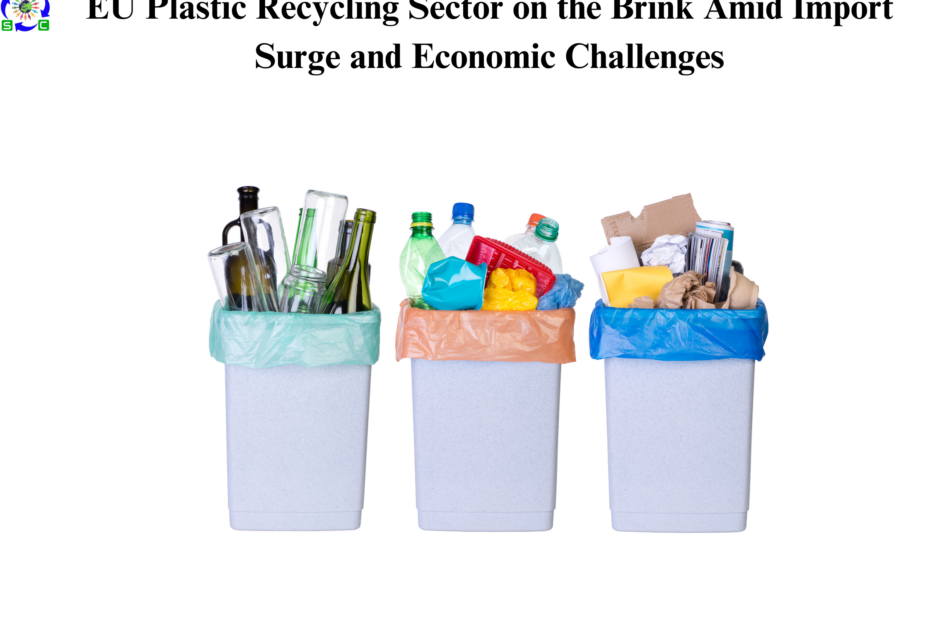 The European Union’s plastic recycling sector is at a turning point, with domestic production declining, economic strains intensifying, and rising imports threatening the industry’s long-term viability.
The European Union’s plastic recycling sector is at a turning point, with domestic production declining, economic strains intensifying, and rising imports threatening the industry’s long-term viability.
Imports and Market Distortions Undermine Domestic Recycling
Imports of virgin and recycled polymers now make up over 20% of total EU polymer consumption, significantly weakening the competitiveness of local recyclers. At the same time, domestic recycling production has dropped by 5% across most polymer categories—a decline that industry leaders warn could push EU plastic production back to levels last seen in 2000.
Economic Pressures and Rising Costs Strain the Industry
Between 2020 and 2023, the recycling industry invested €5 billion (approximately $5.5 billion) to meet the EU’s mandatory recycling targets. However, rising costs of input waste and volatile energy prices have significantly increased operational expenses.
The European Environment Agency (EEA) further reports that inflation and labor shortages have driven up waste collection and sorting costs, further eroding profitability for recyclers.
Stagnating Recycling Capacity and Rising Waste Exports
In a troubling reversal of circular economy efforts, plastic waste exports from the EU surged by 36% in 2024 compared to 2022, according to Eurostat trade data. This trend undermines the EU’s commitment to in-region recycling under the European Green Deal and Circular Economy Action Plan.
As a result, the EU has seen its slowest recycling capacity growth in recent years, with facility closures doubling in 2024 compared to 2023. If closures continue at this pace, they could permanently reverse years of progress in plastic circularity.
Sustainability Targets at Risk
The deteriorating state of the recycling industry jeopardizes the EU’s ability to meet its 2025 recycling targets, which mandate that at least 50% of plastic packaging waste be recycled under the Waste Framework Directive and the EU Plastics Strategy. However, Eurostat data indicates that plastic packaging recycling rates stagnated at 41% in 2022 and are projected to decline further.
Calls for Policy Intervention and Strategic Recognition
Industry leaders are urging the European Commission to classify plastic recycling as a strategic sector critical to the EU’s resource independence, climate goals, and circular economy ambitions. Strengthening trade defense instruments, enforcing sustainability standards for both domestic and imported plastic products, and implementing stricter import controls are necessary to level the playing field.
Without decisive action, the EU risks dismantling its recycling infrastructure, losing green jobs, and increasing reliance on external sources for polymer materials—contradicting the bloc’s goals for strategic autonomy and environmental leadership.
Stay ahead in sustainability compliance with Global PCCS —where expert insights meet the latest regulations. Unlock a future where compliance fuels sustainability, helping your business thrive in a greener, well-regulated world. For more information, contact us at info@globalpccs.com








 Authorised IMDS & CDX Training & Consulting partner for
Authorised IMDS & CDX Training & Consulting partner for






